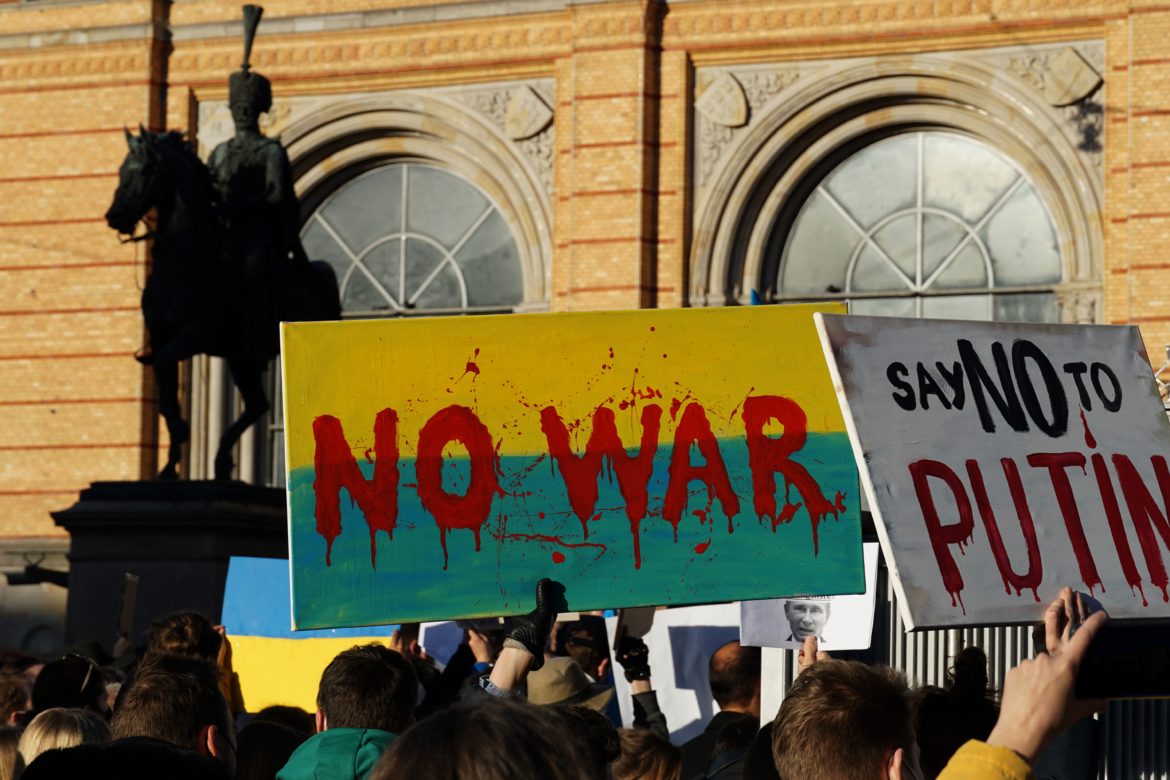While the escalation of the Russia-Ukraine conflict has put the two countries under the spotlight, another country, China, has also been repeatedly mentioned in the war. As the only major power showing ambiguity of the attitude towards Russia’s invasion of Ukraine, China is put to a difficult position by the increasingly hostile situation.
In Chinese social media platforms, direct comments on Ukraine and Russia are subject to strict censorship, and an open letter written by scholars to denounce Russia’s actions was taken down, suggesting an apprehensive view of negative criticism towards the Russian government. Meanwhile, President Xi held a high-profile meeting with Putin during the Beijing Olympics, claiming that China’s support for Russia is “unlimited.” The strong allyship between the two powerful countries becomes even less discrete through China’s abstaining from a UN Security Council vote to condemn the invasion of Ukraine. It seems that China does not plan to hold back on its support for Russia, which dashes the hopes of a peaceful resolution for both international and domestic audiences.
It is no surprise that China would be willing to take the risk of damaging its image as a responsible rising power. According to Chris Miller, assistant professor of international history at Tufts University, “Beijing and Moscow perceive a shared interest in pushing back against the US and Europe and winning a bigger role for themselves in international politics.” The US and western countries have made their ambition to expand their influence clear by urging Ukraine to join NATO, and as regimes that do not share NATO’s ideology, China and Russia have been targets of criticism over the years on their illiberal approach to diplomacy. With Russia as their only powerful ally, China faces the dilemma of either strengthening their ties to intimidate their opponents, further bipolarizing the world, or joining the mainstream to condemn Russia, thus potentially upsetting their most reliable ally. However, choosing the former might bring more drama to the current situation, as smaller countries under China’s orbit of influence would have to follow its step. For example, Pakistan, a primary beneficiary of China’s investment, abstained from UN General Assembly’s resolution to demand Russia immediately withdraw from Ukraine following China’s own abstention. Pakistan’s decision implies a potential ripple effect from China’s actions on critical issues, which adds more factors of instability into the current turmoil.
Another heated discussion on China’s motivation to support Russia points to the parallel between Ukraine’s ties to Russia and Taiwan’s ties to China. Similar to Putin’s claim that “Russians and Ukrainians are one people” and that “Ukraine never had a tradition of genuine statehood”, China insists that Taiwan “is an ‘inalienable’ part of Chinese territory and not a sovereign nation.” The resemblance in the nature of the conflicts make some people suspect that if Russia’s attack on Ukraine is ruled as justified, then China can use this as an excuse to reclaim Taiwan. However, this theory has a few weaknesses, the most important one being that Taiwan’s economic and geopolitical value far exceeds that of Ukraine’s. Economically, Taiwan dominates the global production of computer chips. China’s occupation of the highly profitable industry in Taiwan would add an unimaginable advantage to its already rapid economic growth, which is a reality that cannot be accepted by other major economic powers. Besides being located on the “first island chain” in the western pacific, Taiwan’s geographical location makes the change of the balance of power a threat to the stability in East Asia. Therefore, Taiwan enjoys protection from the US from China’s covet, which is evident from the US government’s effort in forcing China to guarantee its non-interference on Taiwan over the years. However, Ukraine, an underperformed economy that failed the expectation of joining EU, NATO, and OECD along with other large European countries, does not have many economic or political advantages that can attract intervention from foreign powers, which is one of the reasons why Obama refused to interfere in the 2014 Crimea annexation. If China goes to war with Taiwan, the US and its ally would have sufficient motivation to spare no efforts regarding a counterstrike — a situation that China would not be able to handle single handedly.
In fact, China has already shown signs of fear facing external pressures. As the war is universally denounced, China has no excuse to acquiesce to Russia’s behavior. Beijing refuses to supply airline parts to Russia, hoping to pressure Russia to stop the invasion. However, it is hard to say whether this act is just a brief and perfunctory effort while China plots something bigger — to help Russia escape sanctions, which directly blocks the way of punishing Russia for its invasion. According to Professor Syed Munir Khasru, chairman of the international think tank, the Institute for Policy, Advocacy, and Governance, without China and India on board with the sanction, it is hard to make any substantial impact on Russia.
In the Russia-Ukraine conflict, China is stuck between conforming to the morally justified position of supporting anti-war policies and acting according to its self-interest. While China is struggling to strike a balance between the two choices, overall, it shows a clear lean towards the latter. Could it mean a new era of global political order where the polarization between two different ideologies manifests itself in a more violent means?
Edited by Leslie Carmelotes
Ruolan is in her last year at McGill University, majoring in Political Science and Economics. As a staff writer of Catalyst, she is particularly interested in the economic policies in Asia and the politics of authoritarian regimes.

